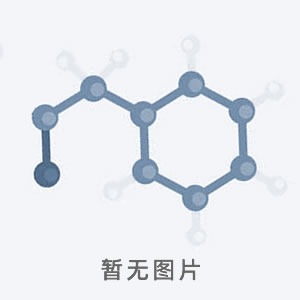本网站销售的所有产品仅用于工业应用或者科学研究等非医疗目的,不可用于人类或动物的临床诊断或者治疗,非药用,非食用。
Recombinant Human MIP-1 alpha/CCL3 (CHO-expressed)
英文名:
Cas号:
Cas号:
检测信息查询

| 货号 | 规格 | 货期 | 库存 | 价格 | 促销价 | 订购 |
| 1308132765-10 μg | 0 | ¥3900 | ||||
| 1308132765-50 μg | 0 | ¥11800 |
| 别 名 | |
| Cas号 | |
| M D L | |
| 分子式 | |
| 分子量 | |
| 产品参数 | |
| 性状 | Recombinant Human MIP-1 alpha/CCL3 (CHO-expressed) 是 CC 亚家族成员,能够与三种细胞表面受体 (CCR1,CCR3 和 CCR5) 结合,具有多种生物活性。
Synonyms rHuMIP-1α/CCL3; C-C motif chemokine 3; MIP1A; SCYA3 ; 重组人 MIP-1 alpha/CCL3 (CHO 细胞表达) Species Human Source CHO Accession P10147 Gene ID 6348 Molecular Weight 8-10 kDa AA Sequence ADTPTACCFS YTSRQIPQNF IADYFETSSQ CSKPGVIFLT KRSRQVCADP SEEWVQKYVS DLELSA Biological Activity The ED50 is <100 ng/mL as measured by CHO/Gα15 cells. Appearance Lyophilized powder. Formulation Lyophilized after extensive dialysis against PBS. Endotoxin Level <0.2 EU/μg, determined by LAL method. Reconstitution Reconstitute the lyophilized recombinant Human MIP-1 alpha/CCL3 (CHO-expressed) (rHuMIP-1α/CCL3) to 100 μg/mL using ddH2O or PBS. Storage & Stability Lyophilized recombinant Human MIP-1 alpha/CCL3 (CHO-expressed) (rHuMIP-1α/CCL3) is stored at -20°C. After reconstitution, it is stable at 4°C for 1 week or -20°C for longer. It is recommended to freeze aliquots at -20°C or -80°C for extended storage. Shipping Room temperature in continental US; may vary elsewhere. Background CCL3 also known as macrophage inflammatory protein 1-a, is a member of the CC subfamily. It’s known that CCL3 is produced by monocytes/macrophages, lymphocytes, neutrophils as well as immune cells such as basophils, mast cells, fibroblasts, and dendritic cells. Meanwhile, CCL3 exerts various biological effects by binding to its three cell surface receptors, including CCR1, CCR3, and CCR5. MIP-1a induces a variety of pro-inflammatory activities such as leukocyte chemotaxis, and promotes the entry of T cells into the inflammatory tissue region from blood circulation. Chemotactic CD4+ cells, CD8+ cells, natural killer cells, and dendritic cells bind to the corresponding receptors and coordinate the occurrence of immune reactions in the immune response site by migrating through vascular endothelial cells. In addition, MIP-1a is considered as a key inflammatory mediator in granuloma, asthma, T1D as well as other autoimmune diseases[1]. |
| 贮存 |
- Recombinant Human MEC/CCL28
- Recombinant Mouse MEC/CCL28
- Recombinant Rat MEC/CCL28
- Recombinant Human MIG/CXCL9
- Recombinant Human MIP-1 alpha/CCL3 (CHO-expressed)
- Recombinant Human MIP-1 beta/CCL4
- Recombinant Mouse Macrophage Inflammatory Protein-2/CXCL2
- Recombinant Human MIP-3/CCL23 (CHO-expressed)
- Recombinant Human MIP-3 alpha/CCL20 (CHO-expressed)

 小程序扫码下单
小程序扫码下单

 沪公网安备 31012002003054号
沪公网安备 31012002003054号